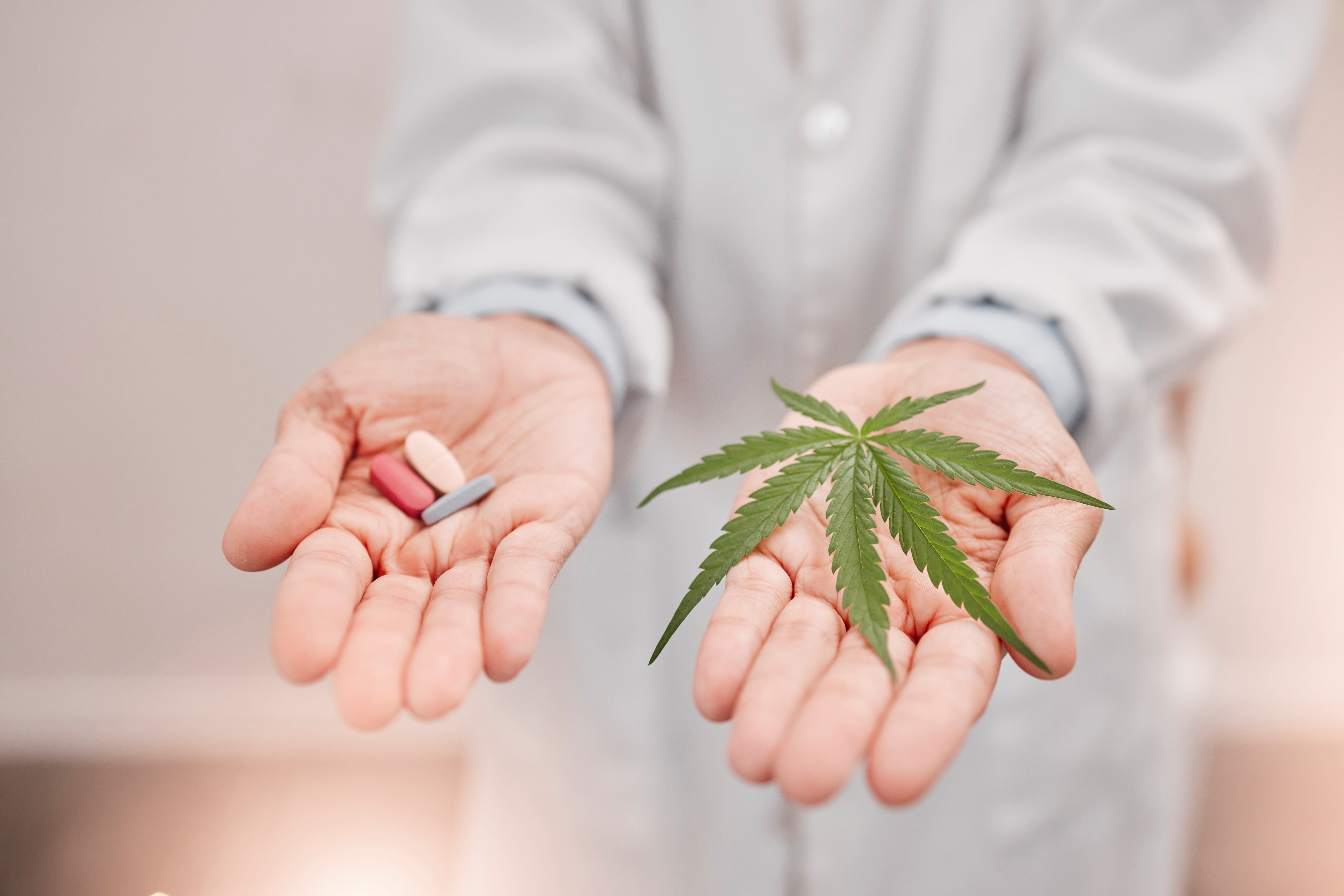Quality Sleep: How to Fight Insomnia?

Today’s hectic lifestyle, stress, poor diet, and a variety of other factors affecting us can lead to one of the most common problems of modern times – insomnia. However, quality sleep is a fundamental pillar of our physical and mental health. If you found yourself in this headline and are struggling with sleep problems, you’re in the right place. In this article, we will explore various aspects of insomnia and offer practical, at-home tips and advice on how to get a good night’s sleep.
What is insomnia?
Insomnia, also known as sleeplessness, can be simply described as problems related to our sleep and its quality. If you want to know whether you suffer from insomnia, just ask yourself a few questions: Are you tired but just can’t fall asleep? Do you wake up frequently during the night? Do you have trouble falling asleep even when you’re exhausted? Do you wake up too early in the morning? If you answered “yes” to at least one of these questions, unfortunately, the news isn’t great, because all these signs point to sleep problems—insomnia. Of course, sometimes these issues last only a few days, which is considered short-term insomnia. However, if these problems persist for more than a month, it is referred to as chronic insomnia. This condition can manifest in various ways and affect an individual’s physical, emotional, and cognitive functions. How does insomnia manifest itself?
Symptoms of insomnia
If your sleep quality is disrupted because you suffer from insomnia, it manifests, as mentioned above, in night awakenings, difficulty falling asleep, fatigue, and similar issues. However, long-term insomnia also affects your overall health and physical condition. What are the health-related symptoms of insomnia?
Chronic fatigue, which leads to daytime sleepiness and overall tiredness.
Reduced immunity, because lack of sleep can weaken the immune system. This makes a person more susceptible to various illnesses and infections.
Problems with memory and concentration. Insomnia negatively affects cognitive functions such as memory, focus, and problem-solving abilities, which in turn impacts overall productivity.
Insomnia can increase the risk of developing depression and anxiety, and it may also manifest as heightened irritability.
Chronic insomnia is associated with an increased risk of high blood pressure. This is quite dangerous, as it can raise the risk of cardiovascular diseases, thereby increasing the likelihood of a heart attack or stroke.
Metabolic problems that can lead to obesity, diabetes, or other metabolic disorders.
The quality of the skin also deteriorates, as lack of sleep visibly affects the skin, causing dark circles under the eyes, puffiness, and an overall worsening of the complexion.
The most common causes of insomnia
If you’ve long forgotten what a good night’s sleep feels like, struggle with insomnia, and are still trying to figure out the reason behind these problems, there could be multiple causes. The factors that disrupt sleep quality can be external or internal. The most common ones include stress, depression, pain, an unhealthy lifestyle, a change of environment, a poor mattress/bed, excessive consumption of caffeine or alcohol, and smoking. However, some serious medical conditions can also lead to insomnia, such as Parkinson’s disease, osteoarthritis, or chronic obstructive pulmonary disease (COPD).
Why do I suffer from insomnia?
You might be wondering why it’s you who experiences poor sleep and suffers from insomnia. Of course, we don’t know the exact answer to this question. You can refer to the previous section, where we mentioned the most common causes of insomnia. Identifying the exact cause of insomnia can be challenging, as it usually involves a combination of factors. Take a moment to reflect on whether you are stressed, experiencing pain, getting enough physical activity, or maintaining a healthy diet. If you have been struggling with insomnia for a long time and none of these factors apply, we recommend consulting a specialist who can help you investigate the issue and identify the underlying cause.
How to fight insomnia
You might be wondering how to finally get a good night’s sleep, or what home remedies exist for better sleep. That’s right—you simply have to fight insomnia. Here are a few tips for achieving good sleep.
Establish a regular sleep schedule that includes consistent bedtime and wake-up times so that your body can get used to this routine.
Create an ideal sleep environment. Make sure your bedroom is quiet, dark, and comfortable.
If you are experiencing stress, incorporate relaxation techniques into your routine or practice yoga to reduce stress and anxiety. You can also play calming, meditative sounds in the background and scent your room with something like lavender. If you are going through a particularly stressful period, we discussed this more in the article Basic Techniques to Relieve Stress. We recommend reading that article and drawing inspiration from the tips for stress reduction.
Adjust your lifestyle to include healthy eating and regular exercise, at least 4 times a week.
If, for example, you smoke, try not to smoke for at least two hours before going to bed.
And for caffeine lovers who struggle with insomnia, here’s a great tip for a good night’s sleep: avoid drinking coffee or any caffeinated beverages at least 6 hours before bedtime.
It’s also helpful to supplement your sleep hormone, melatonin, in the form of over-the-counter dietary supplements.

CBD Products and Insomnia
In addition to melatonin, hemp tea, other herbal teas, or dietary supplements that help with good sleep, CBD products are also great for combating insomnia.
CBD (cannabidiol) is becoming an increasingly popular product in alternative medicine, and its potential effects on sleep and insomnia are attracting growing interest. Some people who struggle with sleep problems seek CBD as a natural alternative to improve the quality of their rest. And why is that?
That’s because CBD affects the endocannabinoid system in the body, which plays a role in regulating various physiological functions, including sleep. This compound binds to CB1 and CB2 receptors, which are distributed throughout the body. CBD itself has calming and relaxing effects, which can be exactly what you need for a good and restful sleep.
CBD Oil for Insomnia
So, as we already hinted above in the section on CBD products and insomnia, one of the products that can help improve sleep is CBD, with its main favorite being CBD oil. One of the factors contributing to insomnia is stress and anxiety. CBD oils have shown great potential in regulating these factors, creating room for improving mental well-being and relaxation before sleep. Additionally, CBD oils possess anti-inflammatory properties, which can be useful in alleviating pain and discomfort that may hinder quality sleep. However, keep in mind that everyone is different, so CBD oil may not be the solution for everyone to achieve a good night’s sleep.

Understand Quality Sleep and Its Stages
To understand how to improve sleep, it is important to know the stages of sleep. Although sleep itself is still a relatively unexplored area, several years of research have shown that sleep consists of two main stages – the Non-REM and REM stages. If these terms are unfamiliar to you, don’t worry; we will explain them in simple terms.
NON-REM sleep phase
Its full name is Non-Rapid Eye Movement, which for English speakers might already be clear, but for others, the literal translation is – Slow Eye Movement. This phase is characterized by calm eye movements, low neuronal activity, and a lower brain temperature. This part of sleep makes up approximately 75–80% of total sleep time and plays a key role in physical regeneration and strengthening immunity. It consists of 4 stages – NREM1 to NREM4.
- Stage 1 represents the transition between wakefulness and deep sleep, where mild twitches and slight eye movements are common.
- Stage 2 can also be called light sleep, which makes up 45–55% of our total sleep time.
- Stage 3 is deep sleep, lasting approximately 10 minutes. Nightmares and sleepwalking may occur during this stage.
- Stage 4 is the deepest and most intense phase of sleep, lasting approximately 30 minutes.
REM sleep phase
REM, or Rapid Eye Movement, is the phase of sleep characterized by fast eye movements lasting approximately 10–20 seconds. It occupies a smaller portion of total sleep, about 20–25%, and repeats several times throughout the night. REM sleep lasts longest just before waking and is when our most vivid dreams occur. This stage of sleep is also crucial for cognitive functions and memory.
What should be the ideal length of sleep?
The ideal duration of quality sleep varies depending on age and the individual needs of each person. Sleep recommendations change throughout the life cycle and across different stages of development. Generally, it can be guided by the rule that to have good sleep and feel well-rested, one should sleep 7–9 hours. Below, we provide average recommendations for different age groups:
- Newborns (0–3 months): 14–17 hours per day
- Infants (4–11 months): 12–15 hours per day
- Toddlers (1–2 years): 11–14 hours per day
- Preschoolers (3–5 years): 10–13 hours per day
- School-age children (6–13 years): 9–11 hours per day
- Teenagers (14–17 years): 8–10 hours per day
- Adults (18–64 years): 7–9 hours per day
- Older adults (65+ years): 7–8 hours per day

